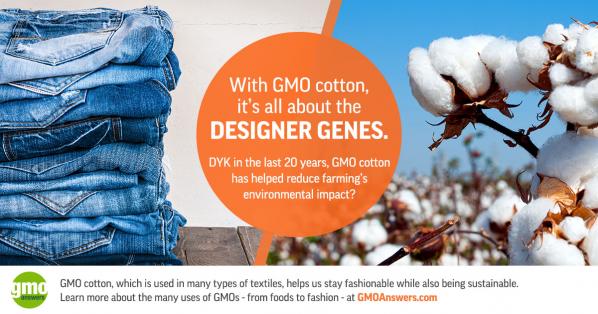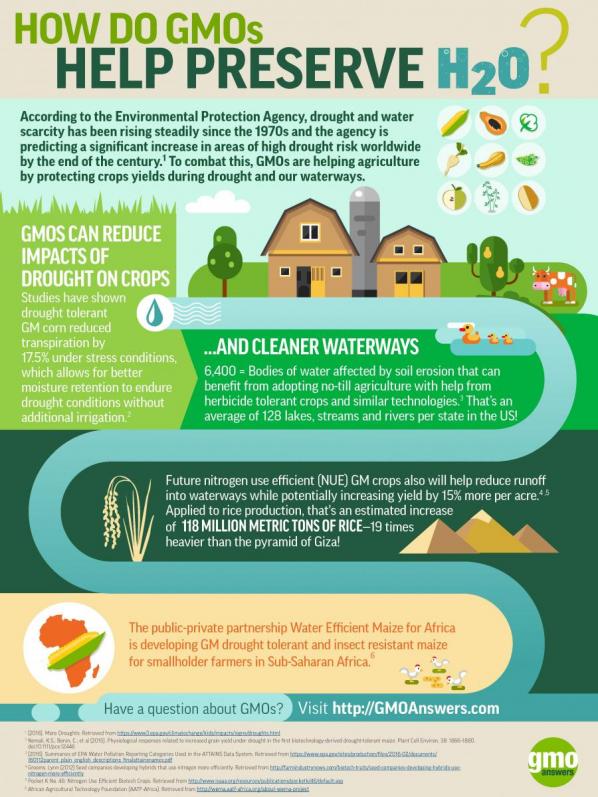Question
Answer
Expert response from Community Manager
Moderator for GMOAnswers.com
Friday, 02/08/2019 22:36
Clean and available sources of water are critical for farmers and successful agricultural production. Drought and water scarcity, which according to the U.S. Environmental Protection Agency has been steadily rising since the 1970s, is especially challenging for farmers. Genetically modified crops can allow farmers to use less water, reduce the impact of drought on crops and support cleaner waterways.
Studies have shown drought-tolerant genetically modified corn reduced transpiration by 17.5 percent under stress conditions, which allows for better moisture retention and the ability to endure droughts without additional irrigation. A public-private partnership in Africa is now working to develop a drought-tolerant and insect-resistant variety of corn specifically designed for the continent. It’s estimated that improved corn varieties could increase yields by 20 to 35 percent in food-insecure communities.
Additionally, no-till agriculture enabled by herbicide-tolerant genetically modified crops reduces soil erosion which can clog waterways. And future nitrogen use efficient genetically modified crops could also help reduce chemical runoff while potentially increasing yield by 15 percent per acre.
We hope this answers your question. If you have any other questions about GMOs or biotechnology, please ask!


